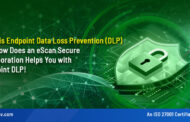
E-Wallets or digital wallets are there in India since the last decade, but demonetization scenario has dragged them into limelight. Here is a brief account on digital wallets, their functionality, selection process and safety measures.
WHAT ARE E-WALLETS?
An e-wallet is a digital form of your physical wallet. Just as your physical wallet stores cash, an e-wallet contains virtual cash. It is just an app installed on your smartphone to store funds digitally.
CURRENT E-WALLET LANDSCAPE IN INDIA
Several e-wallet players in India include banks (8%), telecom companies (45%) and third party providers (47%) like Paytm, Oxigen, Mobikwik, Oxicash, itzcash etc. The digital wallet market has grown significantly in the last five years. It is still growing at 40% annually. It is expected to clock a turnover of Rs. 700 billion by 2022. This year, due to demonetization, some leading players like Paytm are witnessing almost five million transactions per week. More than 60% of transactions like money transfers and recharges are now done through digital wallets.
WHAT ARE THE BENEFITS?
Physical wallets are portable but they can store a limited amount of cash. In addition, physical wallets lead to concerns like theft, loss, soiling of notes etc. Even though digital payments like NEFT and ECS have grown faster, users find it uncomfortable to use these modes, as they require verification of user details each time. E-wallets resolve these concerns. They gained popularity because they are convenient and easily accessible through your smartphone. Users now prefer to make payments through mobile wallets, since it is virtually a single-click payment. It makes the overall transaction complete faster. In addition, installing an e-wallet on your smartphone as a mobile app is hassle-free.
WHERE TO USE THEM?
Digital wallet companies have developed numerous strategic partnerships across categories to offer seamless transactions. Anyone can pay utility bills, book travel tickets, movie tickets or hotel rooms with the help of e-wallets. E-Wallets have created a system where payments happen seamlessly.
HOW TO USE THEM?
eScan suggests you the steps you can follow to use your digital wallet successfully:
1. Users can download a mobile app from the authentic online store (iTUnes/ Google Play Store).
2. Users can load money in the digital wallet via debit/ credit card, net banking etc. Normally there are no charges to transfer the funds into the wallet.
3. While doing the actual payment, the users need to choose `e-Wallet’ from the list of payment options given.
4. There are few partner apps that are associated to the e-wallet. The transactions can be completed even if a user has not downloaded the mobile wallet app. Just for example, Uber has tied up with Paytm, Ola has the Ola Money app etc.
CHOOSE YOUR E-WALLET WISELY
All e-wallets are different from each other. Normally the options for loading money or restrictions on stored cash are similar in the entire category; the only difference lies in the number of partnerships any e-Wallet firm has. In order to use effectively, you can choose your e-wallet that has partnerships with merchants with whom you do transactions frequently. The reason of choosing similar e-wallets is that the money lying in an e-wallet without any transactions is useless. In addition, transfer of funds to your bank account has 1% charge (it has been waived off by several firms until December 31). Frequent transactions in digital wallet can also give you cash-back offers or loyalty points.
As far as security is concerned, e-Wallets are preferred to that of internet banking. According to eScan, you risk is limited with the money loaded in your digital wallet. The providers have to follow stringent security measures while making the services usable.
Although e-wallets have a safe mechanism for storing your valuable money, still you need to take some basic precautionary measures:
1) Never disclose/ write your e-wallet login details anywhere
2) To do any e-Wallet transaction, never hand over your smart phone to strangers like restaurant staff, supermarket attendant, mall employee, fuel station staff etc.
3) Ensure that you have installed a reputed mobile antivirus and regularly scan your smartphone for the presence of any suspicious app or detect and mitigate any suspicious activity.




